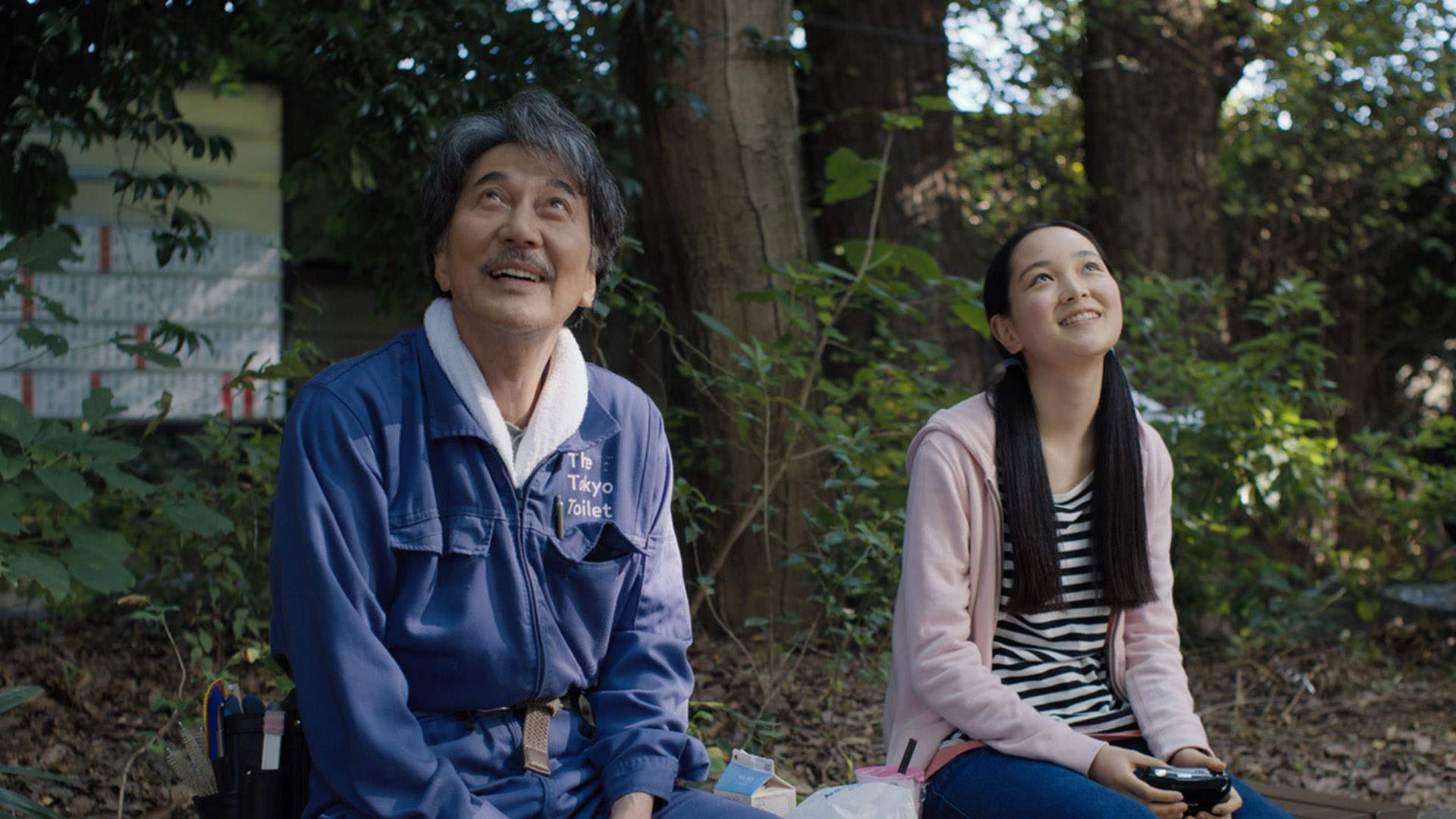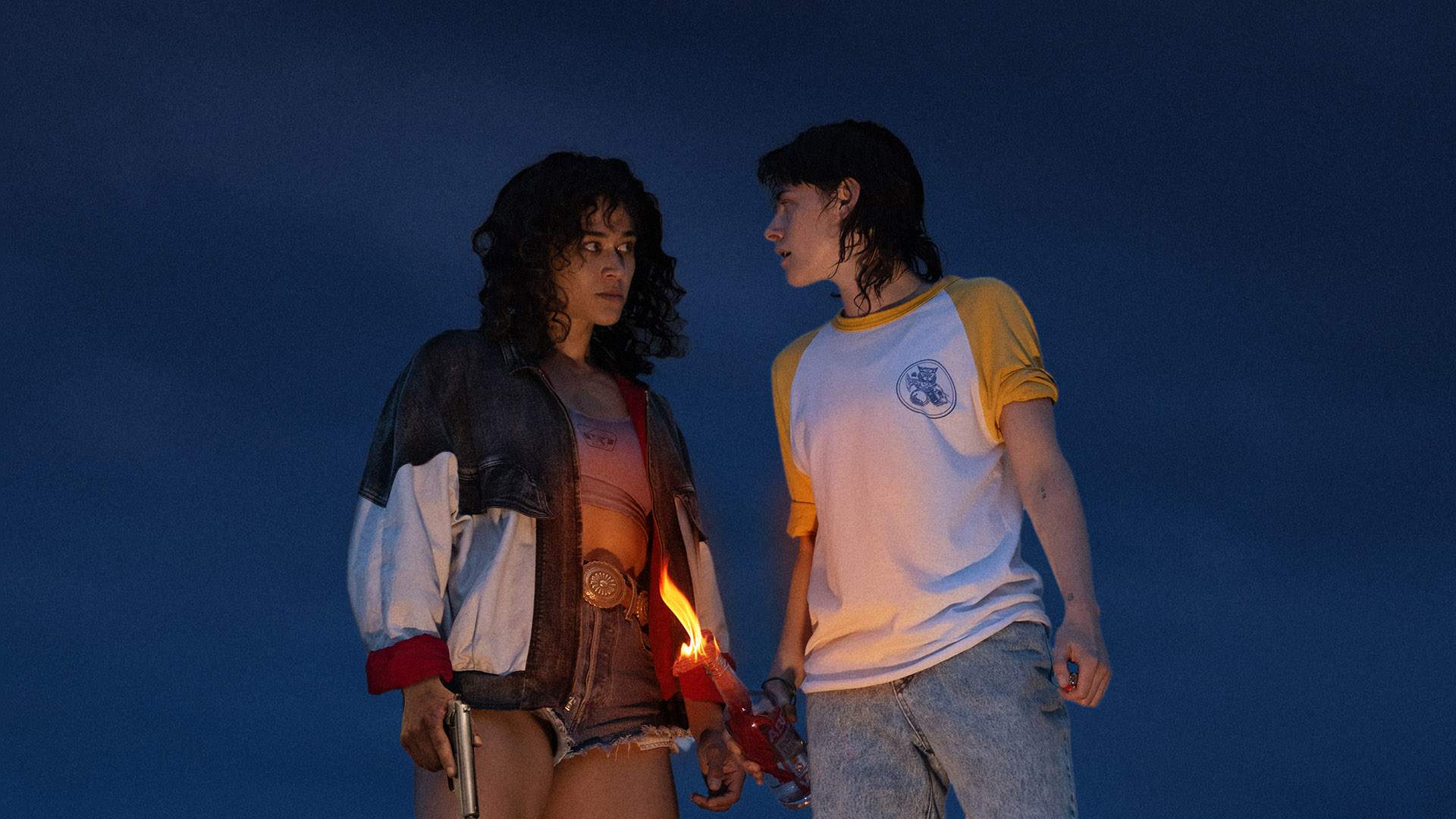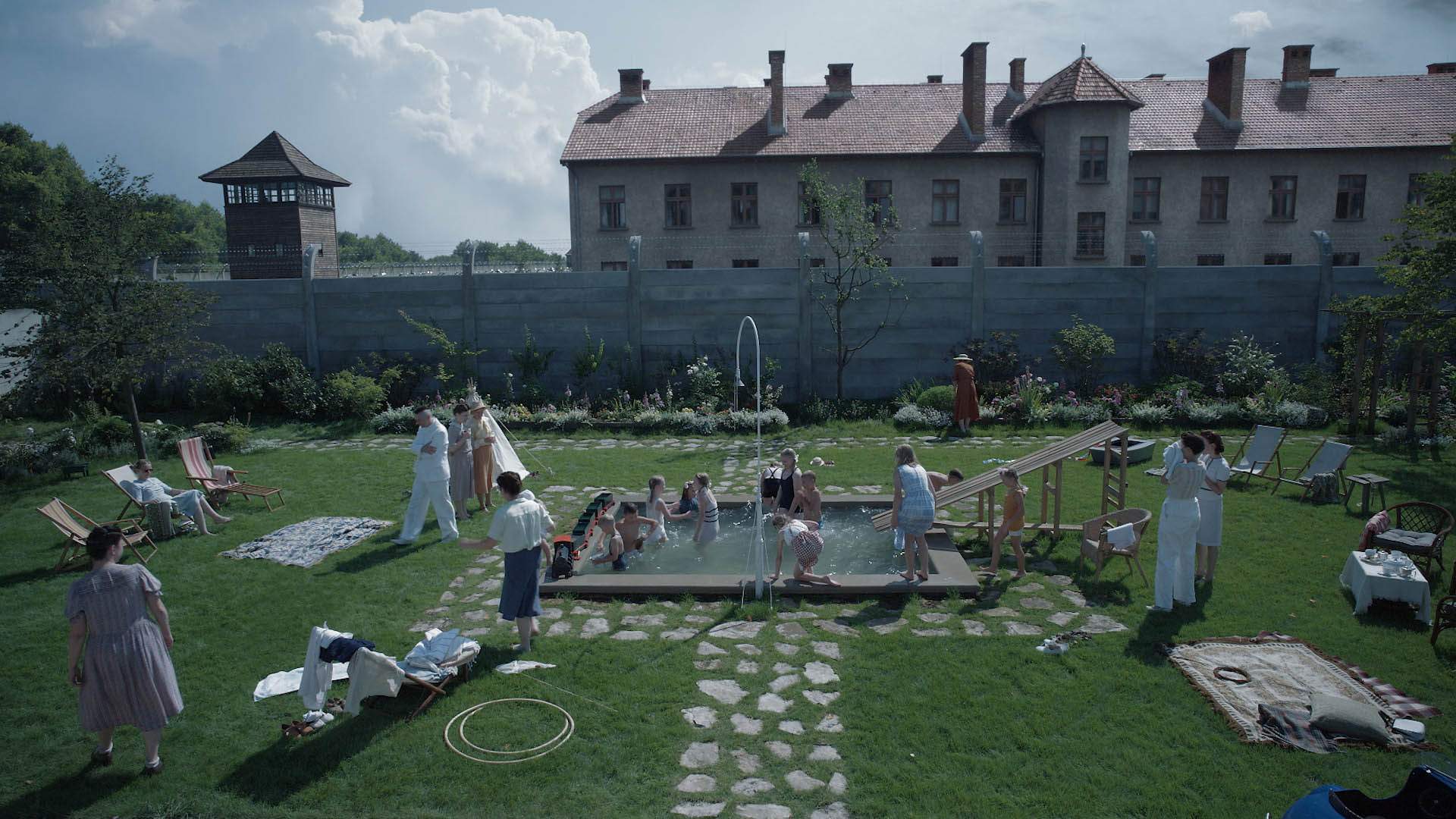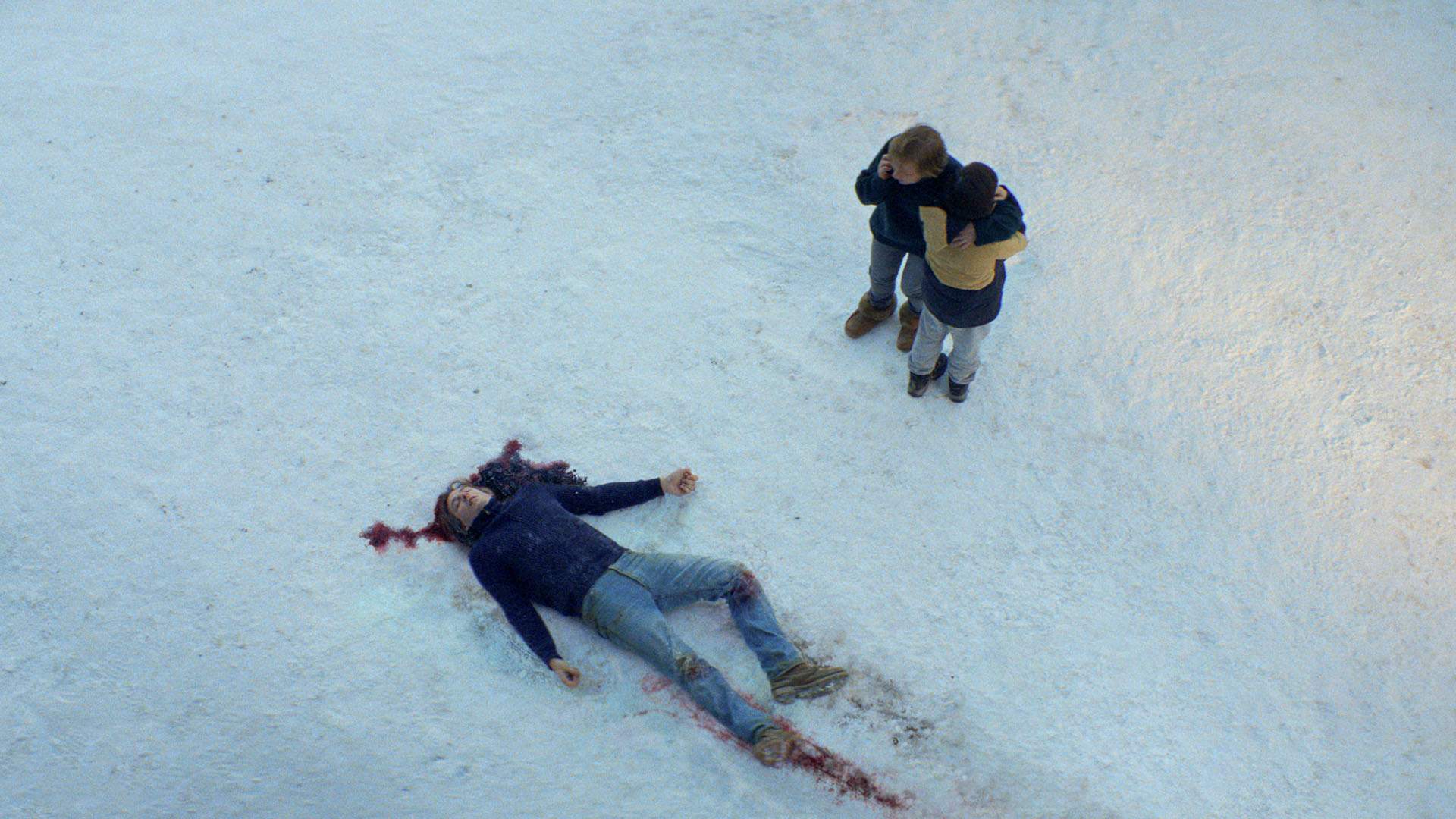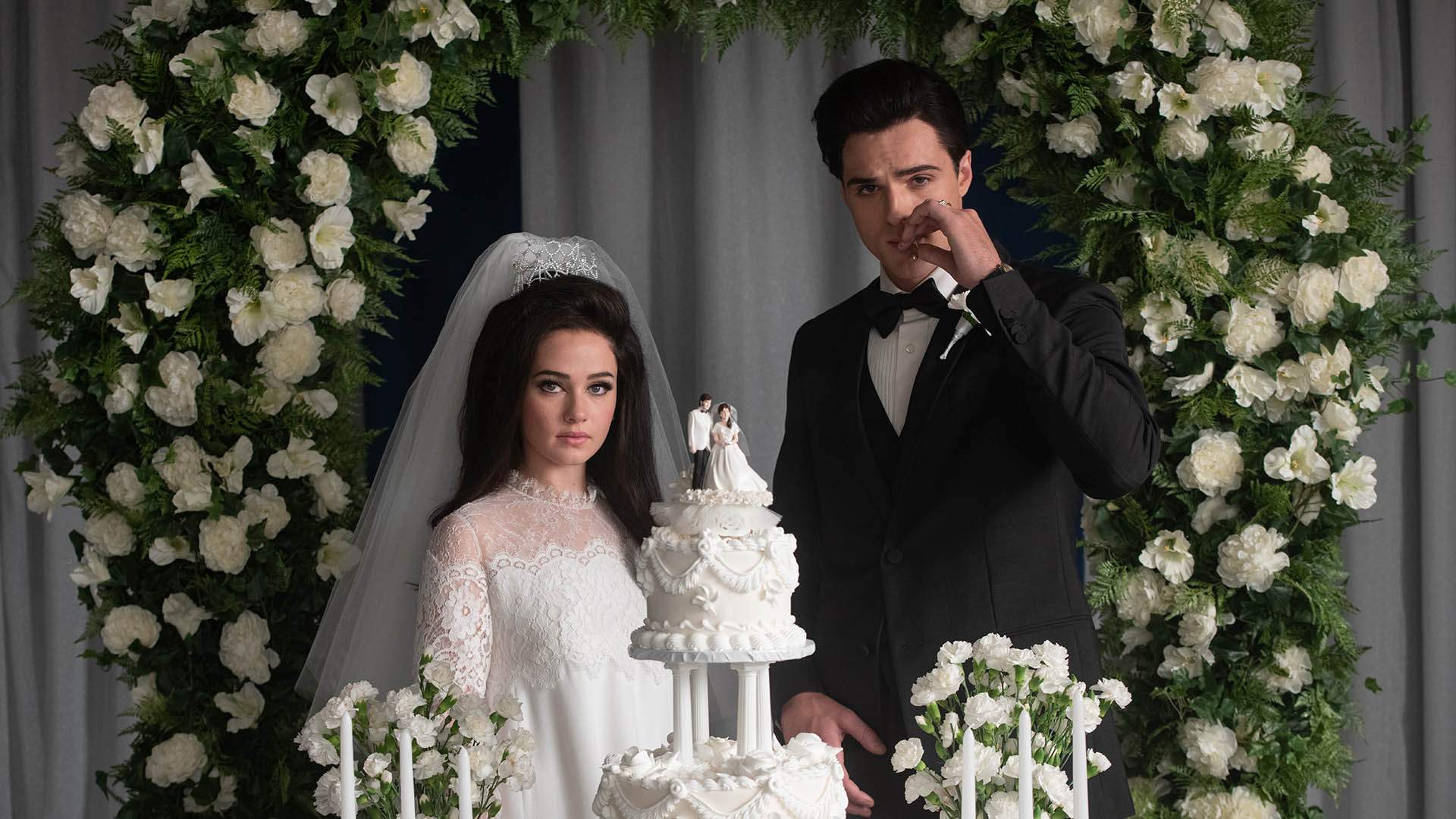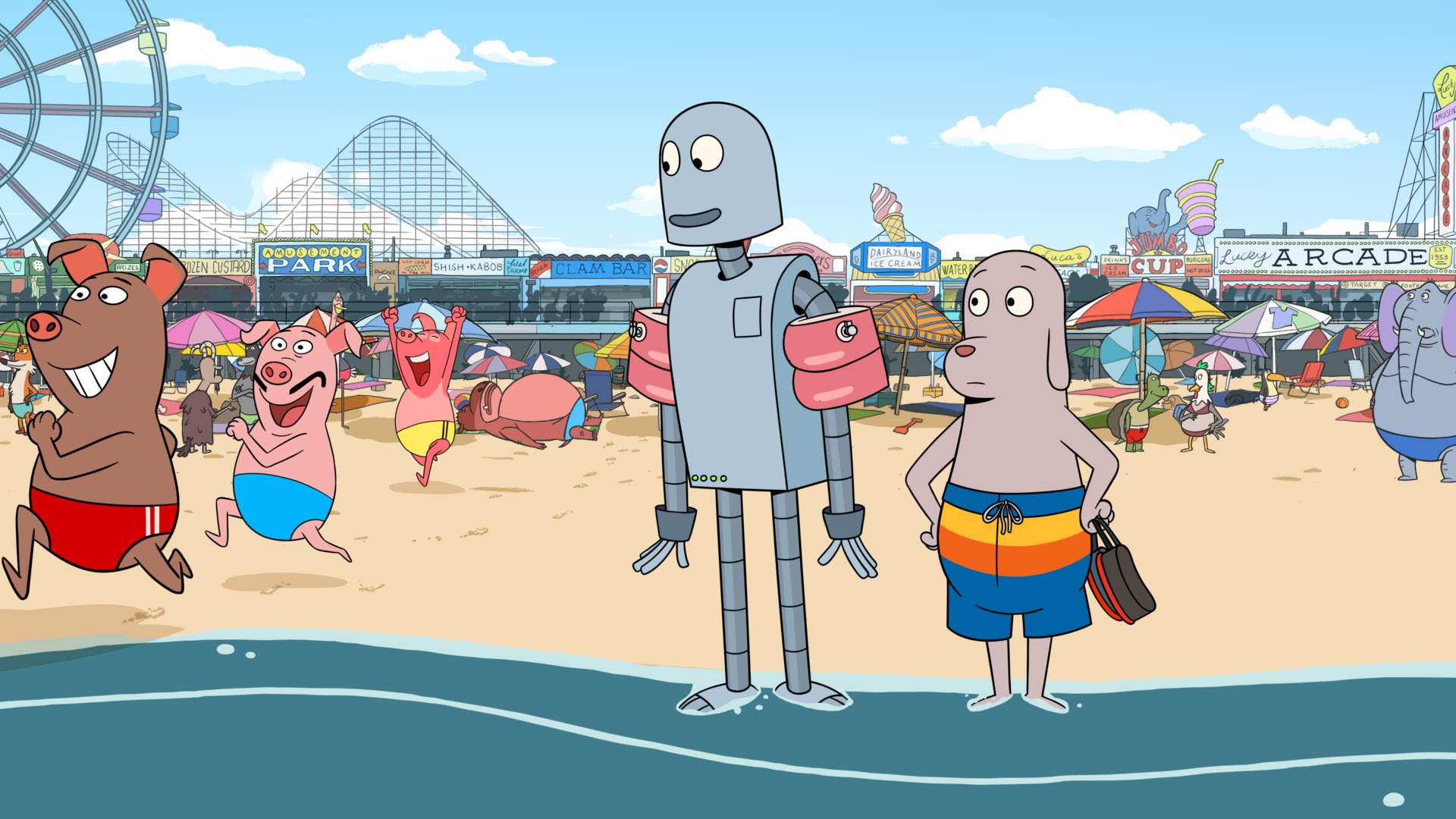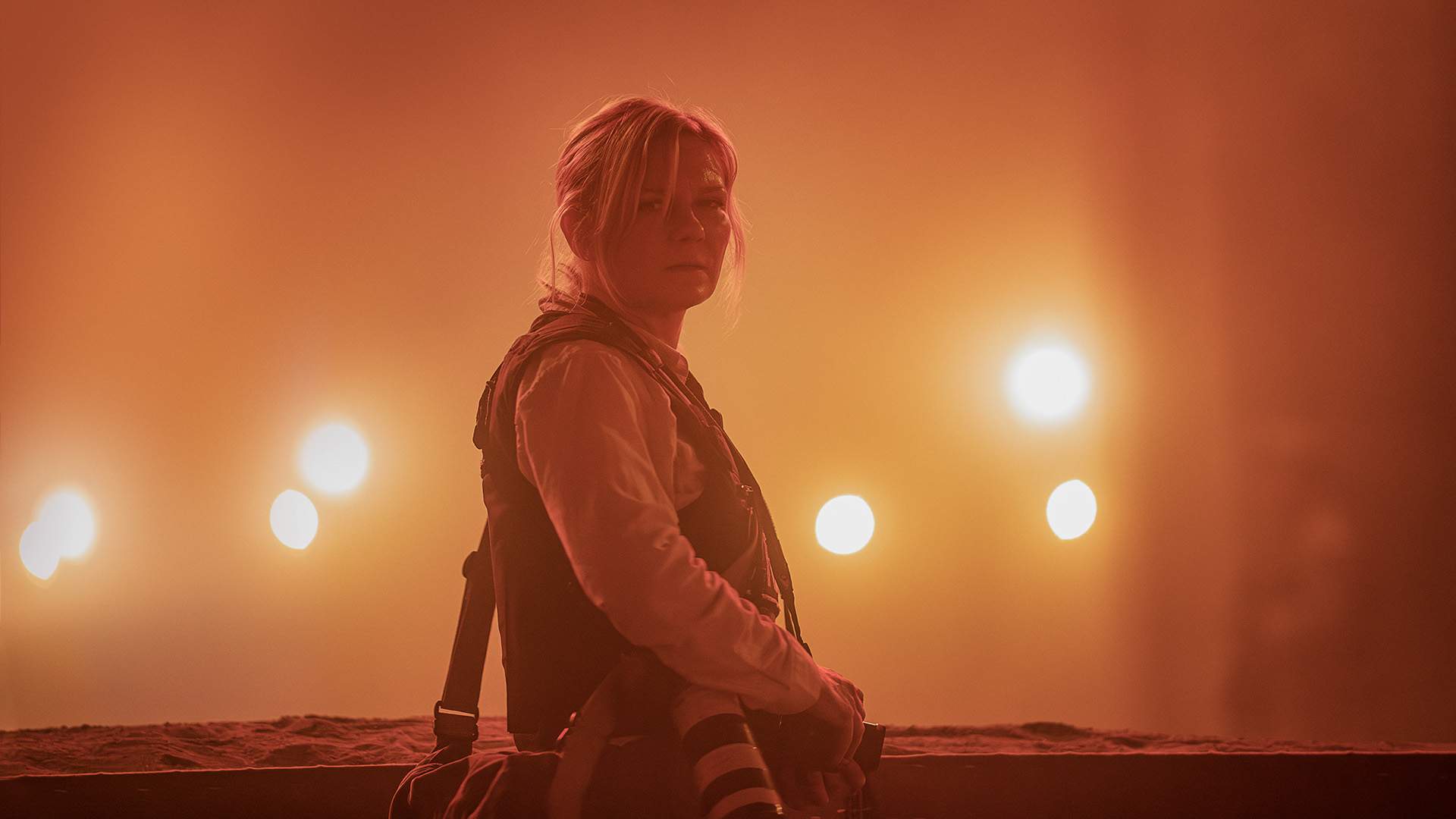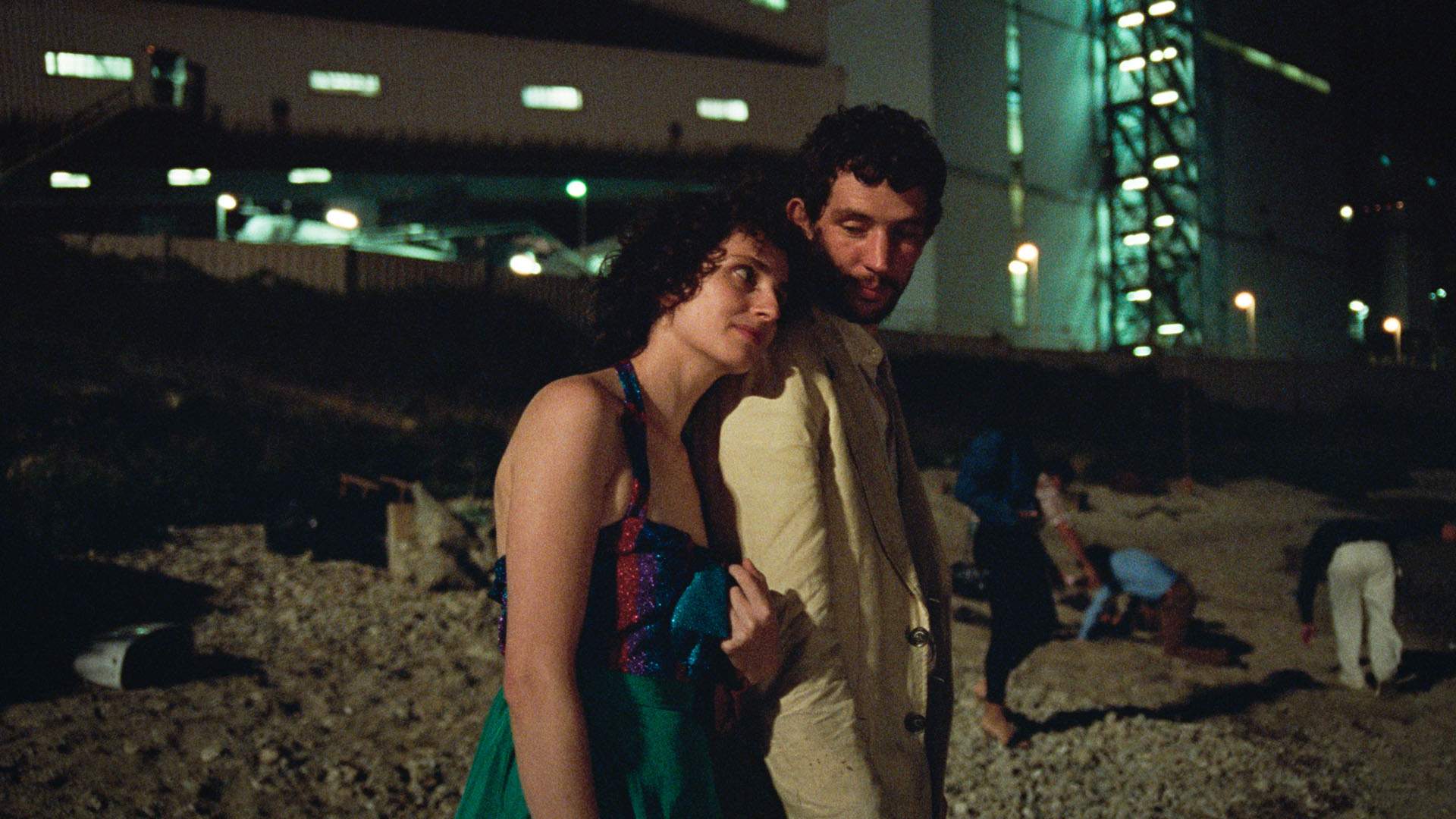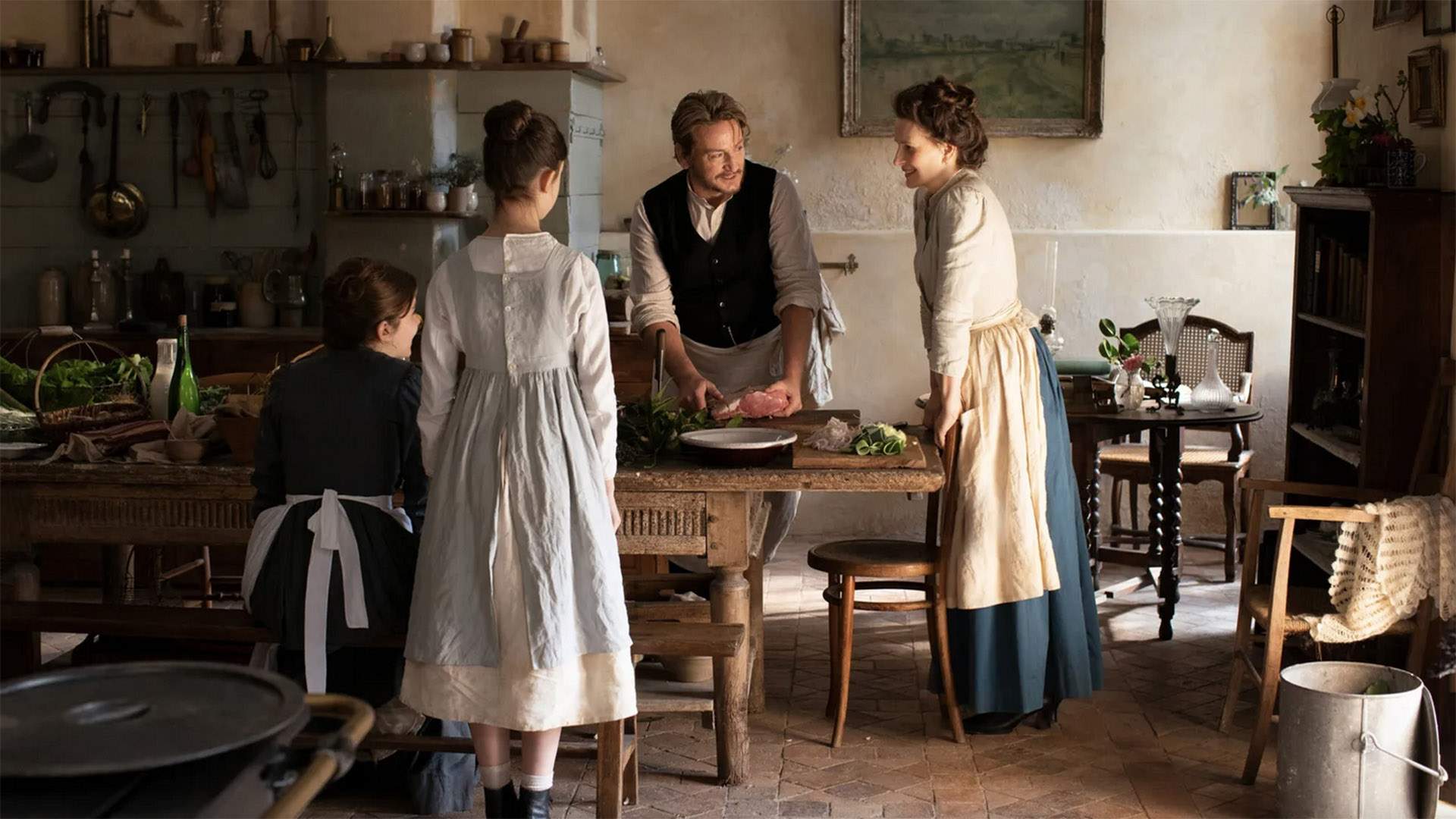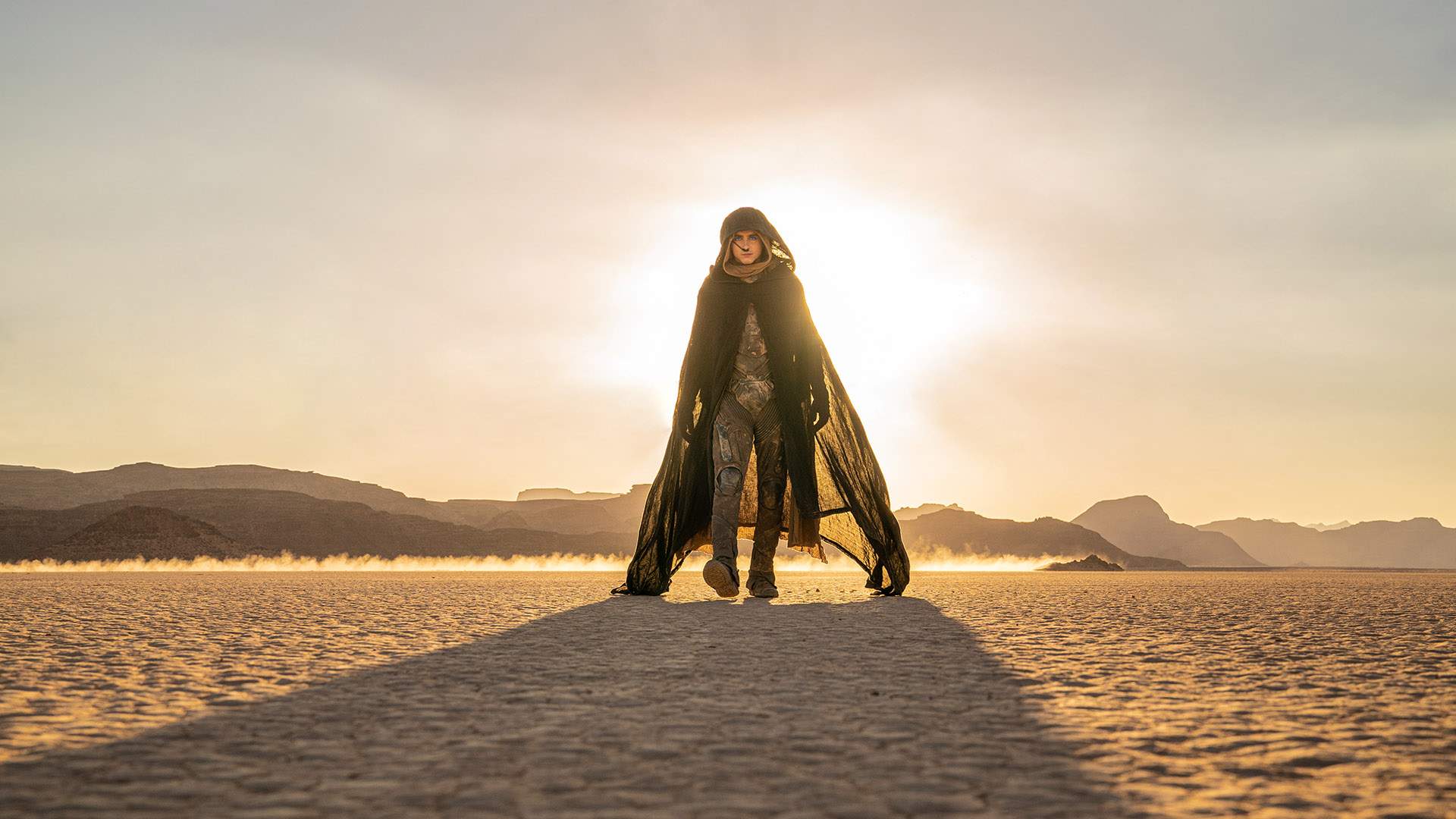The 15 Best Films of 2024 So Far
The best movies from 2024's first half include a meditative trip to Tokyo, a scorching neo-noir thriller, multiple Oscar-winners and a stunning robot story.
Popularity and greatness aren't the same thing, especially in art, but it's always nice when one — or some — of the movies that are getting audiences flocking to cinemas are among the year's best. 2023 managed that feat with Barbie and Oppenheimer. Across 2024's first six months, Dune: Part Two is leading the charge, and spicily. So, if you did see the latest trip to Arrakis at your local picture palace, you saw one of the highlights of the year so far.
The newest exploits of House Atreides and the Fremen fuel just one of 2024's standouts starring Zendaya. Tennis love-triangle drama Challengers, the other, is also merely one of the new flicks this year to feature Josh O'Connor, too — as folks who caught Italian gem La Chimera know. As with every year, this turn of the calendar has been filled with filmic variety, including among the movies that we should all be talking about well into the future. Some won Oscars. Others would've in different years. Some unpack icons. Others demonstrate why particular actors are icons. Some whisk audiences back to the past. Others feel like reliving a memory.
Even at 2024's midpoint, whittling down the top silver-screen releases so far isn't an easy task. It's true now as it always is no matter the year: more than 15 excellent features have debuted on screens Down Under between January–June, whether they were brand-new around the world or just new to us after premiering elsewhere in 2023. The absolute best of the best demand an immediate rewatch. They delight, surprise, challenge and engage. Give them another spin — or, if you missed them to-date, a first look — and you're in for a helluva ace viewing experience.

Perfect Days
When Lou Reed's 'Perfect Day' enjoyed its initial sublime movie moment in Trainspotting, it soundtracked a descent into heroin's depths, including literally via the film's visual choices. For three decades since, that's been the tune's definitive on-screen use. Now drifts in Perfect Days, the Oscar-nominated Japan-set drama from German filmmaker Wim Wenders (Submergence). This slice-of-life movie takes its name from the song. It also places the iconic David Bowie-produced classic among the tracks listened to by toilet cleaner Hirayama (Kôji Yakusho, Vivant) as he goes about his daily routine. Fond of 60s- and 70s-era music, the Tokyo native's picks say everything about his mindset, both day by day and in his zen approach to his modest existence. 'Perfect Day' and Nina Simone's 'Feeling Good' each also sum up the feeling of watching this gorgeous ode to making the most of what you have, seeing beauty in the everyday and being in the moment.
Not every tune that Hirayama pops into his van's tape deck — cassettes are still his format of choice — has the same type of title. Patti Smith's 'Redondo Beach', The Animals' 'The House of the Rising Sun', Otis Redding's '(Sittin' on) The Dock of the Bay' and The Rolling Stones' '(Walkin' Thru the) Sleepy City' also rank among his go-tos, all reflecting his mood in their own ways. If there's a wistfulness to Hirayama's music selections, it's in the manner that comes over all of us when we hark back to something that we first loved when we were younger. Perfect Days' protagonist is at peace with his life, however. Subtly layered into the film is the idea that things were once far different and more-conventionally successful, but Hirayama wasn't as content as he now is doing the rounds of the Japanese capital's public bathrooms, blasting his favourite songs between stops, eating lunch in a leafy park and photographing trees with an analogue camera.
Read our full review.

Love Lies Bleeding
In Love Lies Bleeding, a craggy ravine just outside a dusty New Mexico town beckons, ready to swallow sordid secrets in the dark of the desert's starry night. Tumbling into it, a car explodes in flames partway through the movie, exactly as the person pushing it in wants it to. There's the experience of watching Rose Glass' sophomore film emblazoned across the feature's very frames. After the expertly unsettling Saint Maud, the British writer/director returns with a second psychological horror, this time starring Kristen Stewart in the latest of her exceptionally chosen post-Twilight roles (see: Crimes of the Future, Spencer, Happiest Season, Lizzie, Personal Shopper, Certain Women and Clouds of Sils Maria). An 80s-set queer and sensual tale of love, lust, blood and violence, Love Lies Bleeding is as inkily alluring as the gorge that's pivotal to its plot, and as fiery as the inferno that swells from the canyon's depths. This neon-lit, synth-scored neo-noir thriller scorches, too — and burns so brightly that there's no escaping its glow.
When the words "you have to see it to believe it" also grace Love Lies Bleeding — diving into gyms and in the bodybuilding world, it's no stranger to motivational statements such as "no pain no gain", "destiny is a decision" and "the body achieves what the mind believes" — they help sum up this wild cinematic ride as well. Glass co-scripts here with Weronika Tofilska (they each previously penned and helmed segments of 2015's A Moment in Horror), but her features feel like the result of specific, singular and searing visions that aren't afraid to swerve and veer boldly and committedly to weave their stories and leave an imprint. Accordingly, Love Lies Bleeding is indeed a romance, a crime flick and a revenge quest. It's about lovers on the run (Ant-Man and the Wasp: Quantumania's Katy O'Brian pairs with Stewart) and intergenerational griminess. It rages against the machine. It's erotic, a road trip and unashamedly pulpy. It also takes the concept of strong female leads to a place that nothing else has, and you do need to witness it to fathom it.
Read our full review, and our interview with Rose Glass.

The Zone of Interest
Quotes and observations about evil being mundane, as well as the result when people look the other way, will never stop being relevant. A gripping, unsettling masterpiece, The Zone of Interest is a window into why. The first film by Sexy Beast, Birth and Under the Skin director Jonathan Glazer in more than a decade, the Holocaust-set feature peers on as the unthinkable happens literally just over the fence, but a family goes about its ordinary life. If it seems abhorrent that anything can occur in the shadow of any concentration camp or site of World War II atrocities, that's part of the movie's point. It dwells in the Interessengebiet, the 40-square-kilometre-plus titular area that comprised and surrounded the Auschwitz complex, to interrogate how banal genocide was to those in power; commandant Rudolf Höss (Christian Friedel, Babylon Berlin), even gloats that his name will be remembered and celebrated for its connection to mass extermination.
Höss was a real person, and the real Nazi SS officer overseeing Auschwitz from 1940–43. His wife Hedwig (Sandra Hüller, Anatomy of a Fall) and five children are similarly drawn from truth. But The Zone of Interest finds its way to the screen via Martin Amis' fiction novel of the same name, then hones its interest down from the book's three narrators to the Höss family; a biopic, it isn't, even as it switches its character monikers back to reflect actuality. This is a work of deep probing and contemplation — a piece that demands that its viewers confront the daily reality witnessed and face how the lives of those in power, and benefiting from it, thrived with death not only as a neighbour but an enabler. Camp prisoners tend the Höss' garden. Ashes are strewn over the soil for horticultural effect. Being turned into the same is a threat used to keep the household's staff in line. All three of these details, as with almost everything in the feature, are presented with as matter-of-fact an air as cinema is capable of.
Read our full review.

Anatomy of a Fall
A calypso instrumental cover of 50 Cent's 'P.I.M.P.' isn't the only thing that Anatomy of a Fall's audience won't be able to dislodge from their heads after watching 2023's deserving Cannes Film Festival Palme d'Or-winner. A film that's thorny, knotty and defiantly unwilling to give any easy answers, this legal, psychological and emotional thriller about a woman on trial for her husband's death is unshakeable in as many ways as someone can have doubts about another person: so, a myriad. The scenario conjured up by writer/director Justine Triet (Sibyl) is haunting, asking not only if her protagonist committed murder, as the on-screen investigation and courtroom proceedings interrogate, but digging into what it means to be forced to choose between whether someone did the worst or is innocent — or if either matters. While the Gallic legal system provides the backdrop for much of the movie, the real person doing the real picking isn't there in a professional capacity, or on a jury. Rather, it's the 11-year-old boy who loved his dad, finds him lying in the snow with a head injury outside their French Alps home on an otherwise ordinary day, then becomes the key witness in his mum's case.
Also impossible to forget: the performances that are so crucial in telling this tale of marital and parental bonds, especially from one of German's current best actors and the up-and-coming French talent playing her son. With her similarly astonishing portrayal in The Zone of Interest, Toni Erdmann and I'm Your Man's Sandra Hüller is two for two in movies that initially debuted in 2023; here, she steps into the icy and complicated Sandra Voyter's shoes with the same kind of surgical precision that Triet applies to unpacking the character's home life. As Daniel, who couldn't be more conflicted about the nightmare situation he's been thrust into, Milo Machado Graner (Alex Hugo) is a revelation — frequently via his expressive face and posture alone. If Scenes From a Marriage met Kramer vs Kramer, plus 1959's Anatomy of a Murder that patently influences Anatomy of a Fall's name, this would be the gripping end result — as fittingly written by Triet with her IRL partner Arthur Harari (Onoda: 10,000 Nights in the Jungle).
Read our full review.

Priscilla
Yearning to be one of the women in Sofia Coppola's films is futile, but for a single reason only: whether she's telling of teenage sisters, a wife left to her own devices in Tokyo, France's most-famous queen, the daughter of a Hollywood actor, Los Angeles high schoolers who want to rob, the staff and students at a girls school in the American Civil War, a Manhattanite worried that her husband is being unfaithful or Priscilla Presley, as the writer/director has across eight movies to-date, no one better plunges viewers into her female characters' hearts and heads. To watch the filmmaker's span of features from The Virgin Suicides to Priscilla is to feel as its figures do, and deeply. The second-generation helmer is an impressionistic great, colouring her flicks as much with emotions and mood as actual hues — not that there's any shortage of lush and dreamy shades, as intricately tied to her on-screen women's inner states, swirling through her meticulous frames.
Call it the "can't help falling" effect, then: as a quarter-century of Coppola's films have graced screens, audiences can't help falling into them like they're in the middle of each themselves. That's still accurate with Priscilla, which arrives so soon after Elvis that no one could've forgotten that the lives of the king of rock 'n' roll and his bride have flickered through cinemas recently. Baz Luhrmann made his Presley movie in Australia with an American (Austin Butler, The Bikeriders) as Elvis and an Aussie (Olivia DeJonge, The Staircase) as Priscilla. Coppola crafted hers in North America with a Brisbanite (Jacob Elordi, Saltburn) in blue-suede shoes and a Tennessee-born talent (Cailee Spaeny, Mare of Easttown) adopting the Presley surname. The two features are mirror images in a hunk of burning ways, including their his-and-hers titles; whose viewpoint they align with; and conveying what it was like to adore Elvis among the masses, plus why he sparked that fervour, compared to expressing the experience of being the girl that he fell for, married, sincerely loved but kept in a gilded cage into she strove to fly free.
Read our full review, and our interview with Cailee Spaeny.

Robot Dreams
Heartbreak is two souls wanting nothing more than each other, but life having other plans. So goes Robot Dreams, another dialogue-free marvel from Spanish filmmaker Pablo Berger, who had audiences feeling without words uttered with 2012's Blancanieves — and showed then with black and white imagery, as he does now with animation, that he's a master at deeply expressive visual storytelling. His fourth picture as a director was nominated for Best Animated Feature at the 2024 Academy Awards. In most years, if it wasn't up against Studio Ghibli's The Boy and the Heron, it would've taken home the Oscar. It earns not just affection instead, but the awe deserved of a movie that perfects the sensation of longing for someone to navigate life with, finding them, adoring them, then having fate doing what fate does by throwing up complications.
Usually this would be a boy-meets-girl, boy-meets-boy or girl-meets-girl story. Here, it's a dog-meets-robot tale. The time: the 80s, with nods to Tab and Pong to prove it. The place: a version of Manhattan where anthropomorphised animals are the only inhabitants — plus mechanised offsiders that, just by placing an order and putting together the contents of the package that arrives, can be built as instant friends. Eating macaroni meals for one and watching TV solo in his small East Village apartment each evening, Dog is achingly lonely when he orders his Amica 2000 after seeing an infomercial. As he tinkers to construct Robot, pigeons watch on from the window, but they've never been his company. Soon exuberantly strutting the streets hand in hand with his maker, the android is a dream pal, however, this kismet pairing isn't what gives Robot Dreams its name.
Read our full review.

Civil War
Civil War is not a relaxing film, either for its characters or viewers, but writer/director Alex Garland (Men) does give Kirsten Dunst (The Power of the Dog) a moment to lie down among the flowers. She isn't alone among this stunning movie's stars on her stomach on a property filled with Christmas decorations en route from New York to Washington DC. Also, with shots being fired back and forth, no one is in de-stressing mode. For viewers of Dunst's collaborations with Sofia Coppola, however — a filmmaker that her Civil War co-star Cailee Spaeny just played Priscilla Presley for in Priscilla — the sight of her face beside grass and blooms was always going to recall The Virgin Suicides. Twenty-five years have now passed since that feature, which Garland nods to as a handy piece of intertextual shorthand. As the camera's focus shifts between nature and people, there's not even a tiny instant of bliss among this sorrow, nor will there ever be, as there was the last time that Dunst was framed in a comparable fashion.
Instead, Civil War tasks its lead with stepping into the shoes of a seasoned war photographer in the middle of the violent US schism that gives the movie its name (and, with January 6, 2021 so fresh in everyone's memories, into events that could very well be happening in a version of right now). The US President (Nick Offerman, Origin) is into his third term after refusing to leave office, and the fallout is both polarising and immense. Think: bombed cities, suicide attackers, death squads, torture, lynchings, ambushes, snipers, shuttering the FBI, California and Texas inexplicably forming an alliance to fight back, Florida making its own faction, journalists killed on sight, refugee camps, deserted highways, checkpoints, resistance fighters, mass graves and, amid the rampant anarchy, existence as America currently knows it clearly obliterated. (Asking "what kind of American are you?" barely seems a stretch, though.) The front line is in Charlottesville, but Dunst's Lee Smith is destined for the White House with Reuters reporter Joel (Wagner Moura, Mr & Mrs Smith), where they're hoping to evade the lethal anti-media sentiment to secure an interview with the leader who has torn the country apart.
Read our full review.

La Chimera
It's a film about searching for treasure, and it is indeed a treasure. La Chimera is also dreamy in its look and, while watching, makes its viewers feel as if they've been whisked into one. There's much that fantasies are made of in writer/director Alice Rohrwacher's fourth feature, which follows Corpo Celeste, The Wonders and Happy as Lazzaro — God's Own Country breakout and The Crown star Josh O'Connor leading the picture as a British archaeologist raiding tombs in 80s-era Italy chief among them. Thinking about Lara Croft, be it the game, or the Angelina Jolie (in 2001 and 2003 flicks)- or Alicia Vikander (2018's Tomb Raider)-led movies, is poking into the wrong patch of soil. Thinking instead about the way that life is built upon the dead again and again, and upon unearthed secrets as well, is part of what makes La Chimera gleam.
Rohrwacher's latest, which also boasts her Happy as Lazzaro collaborator Carmela Covino as a collaborating writer — plus Marco Pettenello (Io vivo altrove!) — resembles an illusion not just because it's a rare mix of both magical-realist and neorealist in one, too (well, rare for most who aren't this director). In addition, this blend of romance and drama alongside tragedy and comedy sports its mirage-esque vibe thanks to being so welcomely easy to get lost in. As a snapshot of a tombaroli gang in Tuscany that pilfers from Etruscan crypts to try to get by, it's a feature to dig into. As an example of how poetic a film can be, it's one to soar with. The loose red thread that weaves throughout La Chimera's frames, intriguing folks within the movie, also embodies how viewers should react: we want to chase it and hold on forever, even as we know that, as the feature's 130 minutes tick by, the picture is destined to slip through our fingers.
Read our full review.

The Taste of Things
Cooking is an act of precision. It's also one of feeling. On the movie that nabbed him the Best Director award at the 2023 Cannes Film Festival, Trần Anh Hùng (Éternité, Norwegian Wood) helms with the same care, spirit and emotion that his characters display in the kitchen. The Taste of Things' audience has a front-row seat to both, as this 1885-set French picture begins with dishes upon dishes being whipped up and the feature's gaze, via cinematographer Jonathan Ricquebourg (Final Cut), lenses their creation intimately and sumptuously. The film's extraordinary opening 30 minutes-plus, as the camera is trained on the stove and counter with slight detours around the room to collect or wash ingredients, is meticulously crafted and at the same time instinctual. Think: the sensations of observing the finest of fine-dining chefs and being a child watching your grandmother make culinary magic, as nearly every kid has, all rolled into one appetising introductory sequence.
In the home of gourmand Dodin Bouffant (Benoît Magimel, The King of Algiers), and in its heart, his personal chef Eugénie (Juliette Binoche, The New Look) is so skilled and fastidious that she'd do small-screen hit The Bear proud; she's clearly a conjurer of the culinary arts, too. Hùng and Ricquebourg — the latter a well-deserving Lumiere Award-winner for his efforts here — are methodical with the choreography of setting the scene, while equally deeply immersed in the flow of the kitchen's tasks. As soundtracked by chirping birds, if this was The Taste of Things for 135 minutes and not just half an hour-ish, it'd remain a mesmerising movie. (A word of warning: eat before viewing, lest hunger pangs not just simmer but boil over.) Adapting 1924 novel The Passionate Epicure: La Vie et la Passion de Dodin-Bouffant, Gourmet by epicure Marcel Rouff as he scripts and directs, Hùng does more than fashion among the most-handsomely staged and shot imagery of a meal coming to life, but his approach to this entrée establishes the flavour.
Read our full review.

Dune: Part Two
Revenge is a dish best served sandy in Dune: Part Two. On the desert planet of Arrakis, where golden hills as far as the eye can see are shaped from the most-coveted and -psychedelic substance in author Frank Herbert's estimation, there's no other way. Vengeance is just one course on Paul Atreides' (Timothée Chalamet, Wonka) menu, however. Pop culture's supreme spice boy, heir to the stewardship of his adopted realm, has a prophecy to fulfil whether he likes it or not; propaganda to navigate, especially about him being the messiah; and an Indigenous population, the Fremen, to prove himself to. So mines Denis Villeneuve's soaring sequel to 2021's Dune, which continues exploring the costs and consequences of relentless quests for power — plus the justifications, compromises, tragedies and narratives that are inescapable in such pursuits. The filmmaker crafts his fourth contemplative and breathtaking sci-fi movie in a row, then, after Arrival and Blade Runner 2049 as well.
The vast arid expanse that constantly pervades the frames in Dune: Part Two isn't solely a stunning sight. It looks spectacular, as the entire feature does, with Australian cinematographer Greig Fraser (The Creator) back after winning an Oscar for the first Dune; but as Paul, his widowed mother Lady Jessica (Rebecca Ferguson, Silo), and Fremen Stilgar (Javier Bardem, The Little Mermaid) and Chani (Zendaya, Euphoria) traverse it, it helps carve in some of this page-to-screen saga's fundamental ideas. So does the stark monochrome when the film jumps to Giedi Prime, home world to House Harkonnen, House Atreides' enemy, plus Arrakis' ruler both before and after Paul's dad Duke Leto (Oscar Isaac, Spider-Man: Across the Spider-Verse) got the gig in Villeneuve's initial Dune. People here are dwarfed not only by their mammoth surroundings, but by the bigger, broader, non-stop push for supremacy. While there's no shortage of detail in both Part One and Part Two — emotional, thematic and visual alike — there's also no avoiding that battling against being mere pawns in an intergalactic game of chess is another of its characters' complicated fights.
Read our full review, and our interview with Greig Fraser.

The Promised Land
The transfixing terrain of Mads Mikkelsen's face has been cast against formidably frosty and inhospitable climes before, weathering mirroring weathering. Sporting a piercing and determined glint in his eye, the Danish acting great has previously surveyed the Scandinavian landscape, too, seeing possibility where others spot peril. It was true in Arctic, in Valhalla Rising and now in The Promised Land: there's no stare as mesmerisingly resolute as his. When Ludvig Kahlen, Mikkelsen's latest character, insists that he can do what no one else has done — to begin with: settling the heath on the heather-covered Jutland moorland and building a colony for the king, a feat considered virtually impossible in the mid-18th century — doubting him isn't a possibility for anyone in the movie's audience.
The BAFTA-nominated Another Round star has danced in historical drama territory for his countryman director Nikolaj Arcel in the past as well, with the pair reteaming after 2012's Oscar-nominated A Royal Affair. A different king sits on the throne in this film, Frederick V instead of Christian VII; however, the regal shadow remains inescapable. This time, Mikkelsen and Arcel tell not of a doctor influencing a monarch and a country, but of a soldier aligning his quest for a better future with a sovereign's wish, and learning what it means to chase a dream only to realise that you need something less tangible. Kahlen's attempt to farm land considered barren is equally a battle against entitlement and arrogance thanks to his clash with Frederik de Schinkel (Simon Bennebjerg, Borgen), a cruel local magistrate who contends that the king's land is his own — and feels far enough away from Copenhagen for there not to be any consequences for his claim.
Read our full review.

Challengers
Tennis is a game of serves, shots, slices and smashes, and also of approaches, backhands, rallies and volleys. Challengers is a film of each, too, plus a movie about tennis. As it follows a love triangle that charts a path so back and forth that its ins and outs could be carved by a ball being hit around on the court, it's a picture that takes its aesthetic, thematic and emotional approach from the sport that its trio of protagonists are obsessed with as well. Tennis is everything to Tashi Duncan (Zendaya, Dune: Part Two), Art Donaldson (Mike Faist, West Side Story) and Patrick Zweig (Josh O'Connor, La Chimera), other than the threesome themselves being everything to each other. It's a stroke of genius to fashion the feature about them around the game they adore, then. Metaphors comparing life with a pastime are easy to coin. Movies that build such a juxtaposition into their fabric are far harder to craft. But it's been true of Luca Guadagnino for decades: he's a craftsman.
Jumping from one Dune franchise lead to another, after doing Call Me By Your Name and Bones and All with Timothée Chalamet, Guadagnino proves something else accurate that's been his cinematic baseline: he's infatuated with the cinema of yearning. Among his features so far, only in Bones and All was the hunger for connection literal. The Italian director didn't deliver cannibalism in Call Me By Your Name and doesn't in Challengers, but longing is the strongest flavour in all three, and prominent across the filmmaker's Suspiria, A Bigger Splash and I Am Love also. So, combine the idea of styling a movie around a tennis match — one spans its entire duration, in fact — with a lusty love triangle, romantic cravings and three players at the top of their field, then this is the sublime end product. Challengers is so smartly constructed, so well thought-out down to every meticulous detail, so sensual and seductive, and so on point in conveying Tashi plus Art and Patrick's feelings, that it's instantly one of Guadagnino's grand slams.
Read our full review, as well as what Zendaya, Josh O'Connor and Mike Faist had to say about the film when they were in Australia.

All of Us Strangers
As Fleabag knew, and also Sherlock as well, Andrew Scott has the type of empathetic face that makes people want to keep talking to him. Playing the hot priest in Phoebe Waller-Bridge's (Indiana Jones and the Dial of Destiny) acclaimed comedy, he was the ultimate listener. Even as the Moriarty to Benedict Cumberbatch's (The Wonderful Story of Henry Sugar) Holmes, and with a game always afoot, conversation flowed. All of Us Strangers puts this innate air — this sensation that to be in Scott's company is to want to unburden yourself to his welcoming ears — at its tender and feverishly beating heart, this time with Paul Mescal (Foe) as one of his discussion partners. Dreamy and contemplative, haunting and heartfelt, and also delicate and devastating, the fifth film by Weekend and 45 Years writer/director Andrew Haigh, which is his first since 2017's Lean on Pete, is stunningly cast with Scott in seeing-is-feeling mode as its isolated screenwriter protagonist alone.
That Scott is joined by Mescal, Claire Foy (Women Talking) and Jamie Bell (Shining Girls) gives All of Us Strangers one of the finest four-hander casts in recent memory. Awards bodies clearly agree, with nods going around for everyone (alongside wins for Best Film and Best Director, the British Independent Film Awards gave all four of the feature's core cast members nominations, with Mescal scoring the Best Supporting Performance trophy, for instance). Haigh isn't merely preternaturally talented at picking the exact right actors to play his on-screen figures, but it's one of his most-crucial skills, as every performance in his latest shattering picture demonstrates. It comes as no surprise that Scott, Mescal, Foy and Bell are all excellent. It's similarly hardly unexpected that Haigh has made another movie that cuts so emotionally deep that viewers will feel as if they've been within its frames. Combine these stars with this filmmaker, though, and a feature that was always likely to combine its exceptional parts into a perfect sum is somehow even more affecting and astonishing.
Read our full review.

How to Have Sex
Movies don't have pores, but How to Have Sex might as well. Following a trip to Greece with three 16-year-old best friends who want nothing more than to party their way into womanhood — and to get laid, too — this unforgettable British drama is frequently slick with sweat. Perspiration can dampen someone when they're giddily excited about a wild getaway, finishing school and leaving adolescence behind. It can get a person glistening when they're rushing and drinking, and flitting from pools and beaches to balconies and clubs. Being flushed from being sozzled, the stickiness that comes with expending energy, the cold chill of stress and horror, the fluster of a fluttering heart upon making a connection: they're all sources of wet skin as well. Filmmaker Molly Manning Walker catalogues them all. Viewers can see the sweat in How to Have Sex, with its intimate, spirited, like-you're-there cinematography. More importantly, audiences can feel why protagonist Tara (Mia McKenna-Bruce, Vampire Academy) is perspiring, and the differences scene to scene, even when she's not quite sure herself.
How to Have Sex also gets those watching sweating — because spying how you've been Tara, or her pals Em (debutant Enva Lewis) and Skye (Lara Peake, Halo), or lads Badger (Shaun Thomas, Ali & Ava) and Paddy (Samuel Bottomley, The Last Rifleman) in the neighbouring resort unit, is inescapable. Walker has been there herself, with parts of her debut feature as a writer and director drawn from her own time as a Tara, Em or Skye while also making the spring break and Schoolies-like pilgrimage from England to the Mediterranean. When the movie doesn't lift details directly from her own experience, it shares them with comparable moments that are virtually ripped from western teendom. One of the feature's strokes of genius is how lived-in it proves, whether Tara and her mates are as loud and exuberant as girls are when their whole lives are ahead of them, its main character is attempting to skip her troubles in a sea of strobing lights and dancing bodies, or slipping between the sheets — but not talking about it — is changing who Tara is forever.
Read our full review, and our interview with Molly Manning Walker.

Drive-Away Dolls
No one might've thought of Joel and Ethan Coen as yin and yang if they hadn't started making movies separately. Since 2018's The Ballad of Buster Scruggs, their latest feature together as sibling filmmakers, the elder of the Coen brothers went with Shakespearean intensity by directing 2021's The Tragedy of Macbeth on his lonesome — while Ethan now opts for goofy, loose and hilariously sidesplitting silliness with Drive-Away Dolls. The pair aren't done collaborating, with a horror flick reportedly in the works next. But their break from being an Oscar-winning team has gifted audiences two treats in completely different fashions. For the younger brother, he's swapped in his wife Tricia Cooke, editor of The Big Lebowski, O Brother, Where Art Thou? and The Man Who Wasn't There, on a picture that couldn't slide more smoothly onto his resume alongside the madcap antics that the Coens combined are known for. Indeed, spying shades of the first of those two features that Cooke spliced in Drive-Away Dolls, plus Raising Arizona, Fargo and Burn After Reading as well, is both easy and delightful.
As a duo, the Coen brothers haven't ever followed two women through lesbian bars, makeout parties and plenty of horniness between the sheets, though, amid wall dildos and other nods to intimate appendages, even if plenty about the Ethan-directed, Cooke-edited Drive-Away Dolls — which both Ethan and Cooke co-wrote — is classic Coens. There's the road-trip angle, conspiracy mayhem, blundering criminals in hot pursuit of Jamie (Margaret Qualley, Poor Things) and Marian (Geraldine Viswanathan, Cat Person), dumb men (those crooks again) in cars and just quirky characters all round. There's the anarchic chases, witty yet philosophical banter and highly sought-after briefcase at the centre of the plot, too. And, there's the fact that this is a comedic caper, its love of slapstick and that a wealth of well-known faces pop up as the zany antics snowball. The Joel-and-Ethan team hasn't made a film as sapphic as this, either, however, or one that's a 90s-set nod to, riff on, and parody of 60s- and 70s-era sexploitation raucousness.
Read our full review, and our interview with Ethan Coen and Tricia Cooke.
